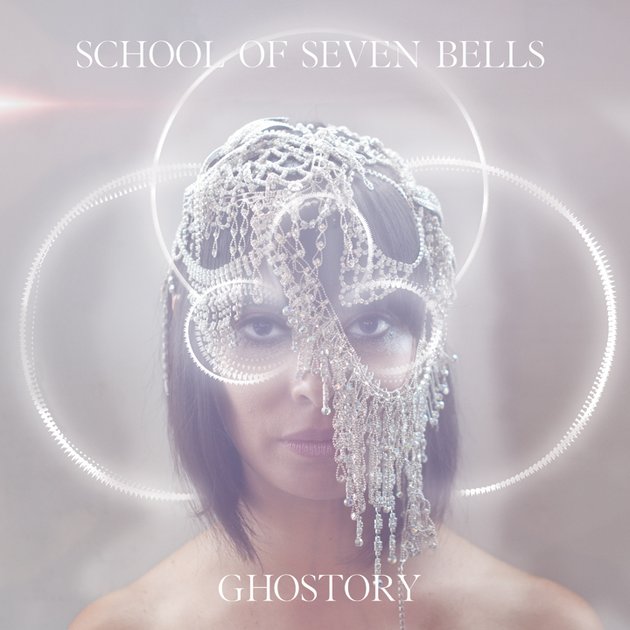Losing a member can leave a band in disarray or void of the power they once held and it frequently puts the music in a wildly off-putting direction. The concept is also not something that typically leaves the project in a seemingly directional state. In plenty of other cases, however, a lineup change may challenge a band to revitalize their thirst for making music, try new things, and in general, move on. In October 2010, Claudia Deheza, the twin sister of current frontwoman Alejandra Deheza, left School of Seven Bells. Since then, they have continued to play shows and write new music without any noticeable hitch. With Ghostory, School of Seven Bells recovers with a newfound voice, still evokes everything they once were as dream pop dealers, but it’s still extremely visible that they have more room to grow.
The album’s theme isn’t exactly ambiguous; the idea of a “ghost story” representing lost love and things that once were, and not totally drenched in sadness, there’s still a gleaming sense of confidence to the lyrics that rule each track. Ghostory opens with “The Night,” a rough-and-ready vehicle for their building instrumentation and vocals. The undertone feels triumphant as if they’ve regained their spirit as a group, or now rather a duo.
After the first few songs, the absence of the harmonies once produced by the two sisters begins to be seen as their biggest change and their most missed attribute. Consequently, School of Seven Bells aims to recapture that aspect of their sound through vocal multipliers and luckily ends up feeling like a directional aesthetic. The other new endeavor on the new record is a collaborative writing effort between Alejandra Deheza and Benjamin Curtis, something that has made their work feel tighter and more cohesive.
The band’s synthesizer direction has also gone wayside for an arena rock, and almost new-wave method of producing music. “Scavenger” is a perfect example, and perhaps the most successful result of the changing sound. The hooks are engaging, the minimalist vocal presentation is spot-on, and it is definitely the most fulfilling rock song on Ghostory. The band finds the perfect balance of their new style and what made people enjoy School of Seven Bells with “Lafaye,” a track with a chorus that is immediately catchy and will stay with you after your first listen of the album. For the most part, the duo has kept up with themselves and gotten over the limitations that were provided to them after 2010, but that doesn’t go without saying they still feel at times very dry and static.
Album closer “When You Sing” feels like it’s been made many times and refined even more. M83, last year, conquered the idea of the booming guitar and big drums and found ways to give off a mood that went places. The problem with School of Seven Bells’ take is that it the build-up pushes too little and too late. On “Low Times,” though, we find them trying to make a dance track that comes off as boring until the last two minutes. Perhaps it just doesn’t work in the context of the album, but it’s most assuredly Ghostory‘s bane.

